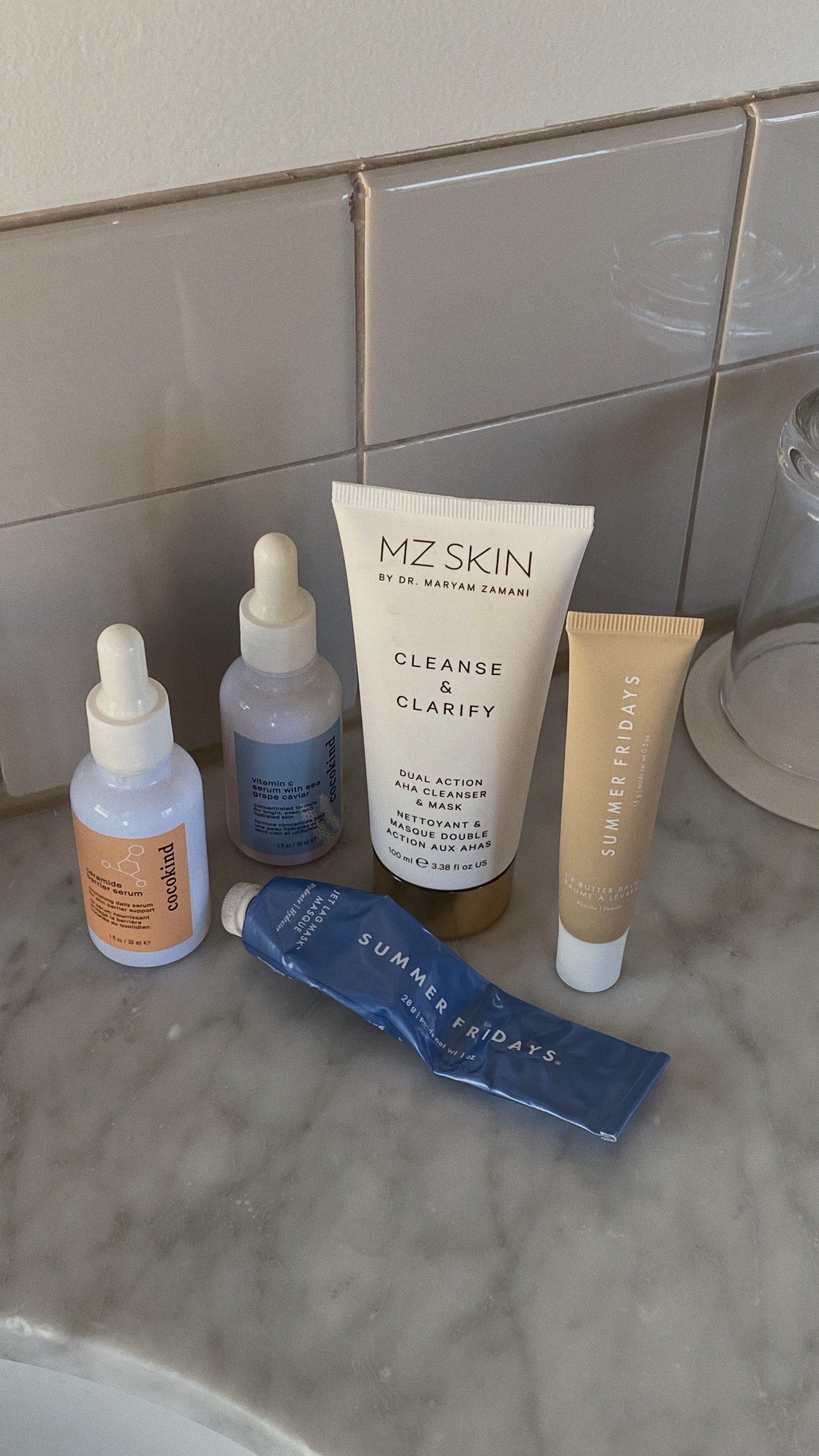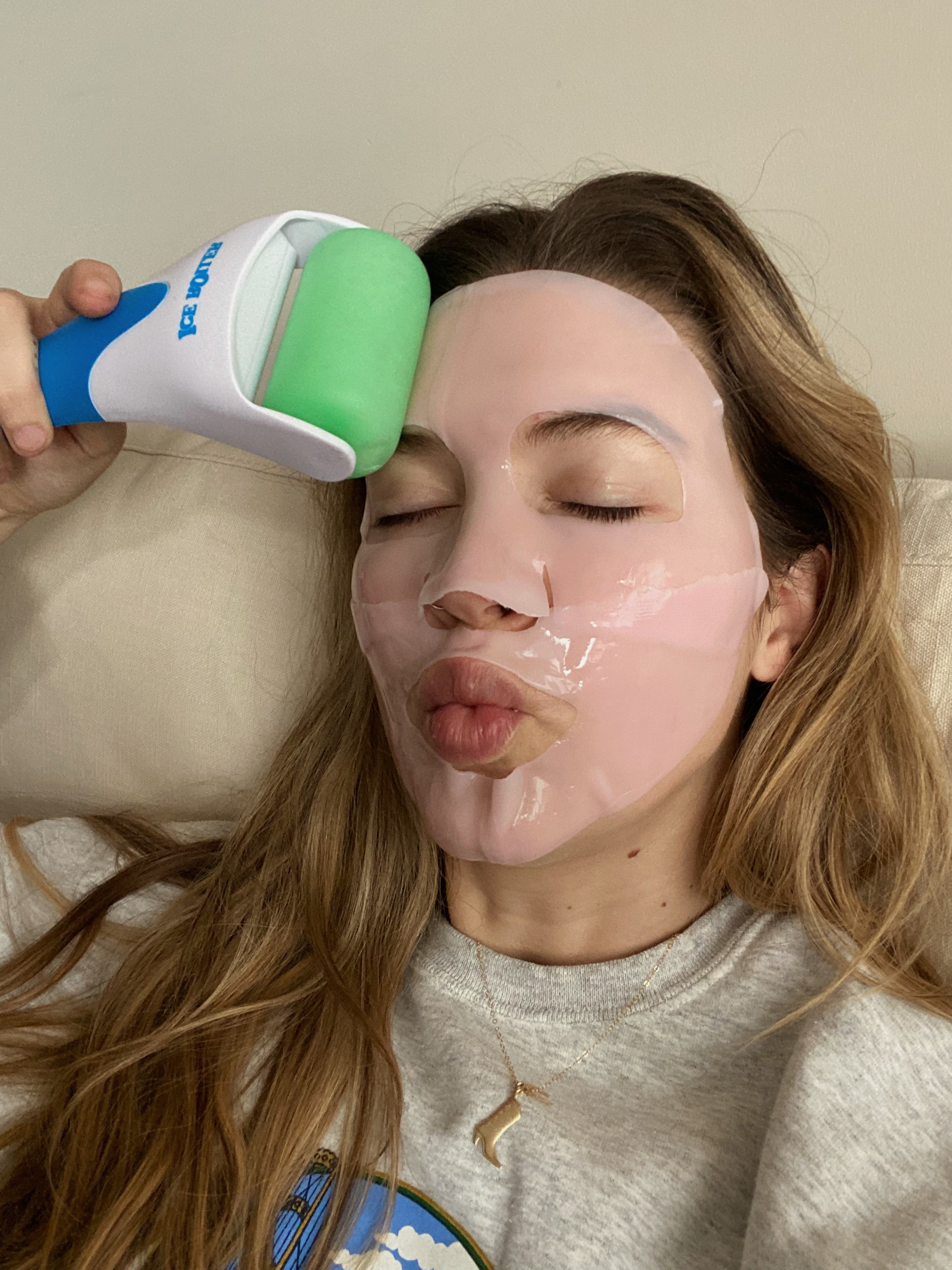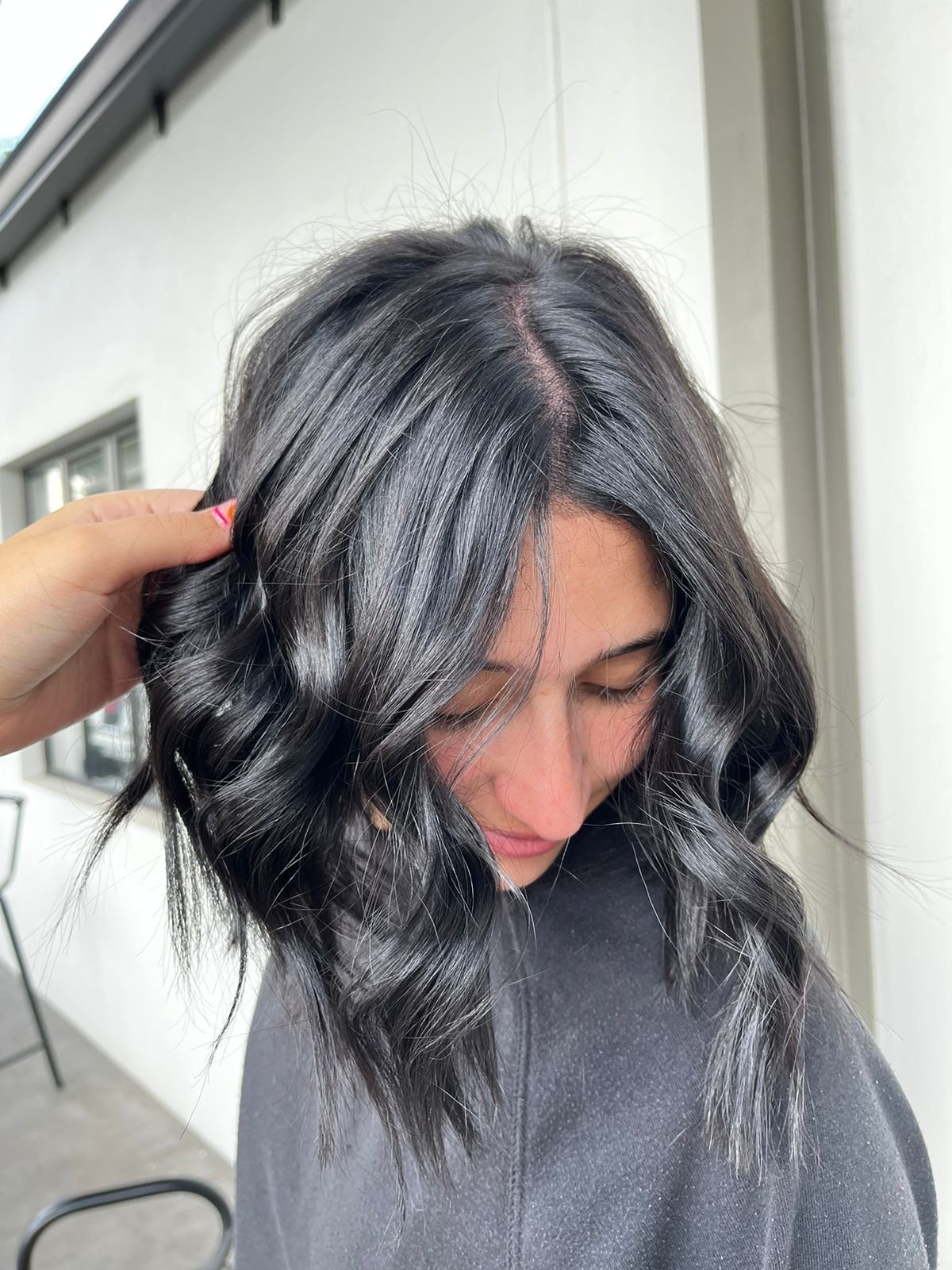Skincare Trend: Everything You Need to Know About Peptides
Image via Dupe Photos
Skincare has evolved over the years, and one of the latest trends gaining popularity is the use of peptides in skincare products. Peptides are small chains of amino acids that are the building blocks of proteins. They play a crucial role in various biological processes, including skin health. In this article, we will explore the benefits of peptides in skincare, popular types of peptides used in skincare products, how to incorporate peptides in your skincare routine, and potential risks and precautions to consider.
Benefits of Peptides in Skincare Peptides offer numerous benefits for the skin. One of the key benefits is their ability to boost collagen production. Collagen is a protein that provides structure and elasticity to the skin. As we age, collagen production decreases, leading to sagging skin and wrinkles. Peptides can stimulate collagen synthesis, helping to restore the skin's firmness and plumpness, thereby reducing the signs of aging.
In addition to collagen production, peptides can also improve skin texture. They can help to smooth out rough skin, minimize pores, and even out skin tone, giving the skin a smoother and more youthful appearance. Peptides also have hydrating properties that can help to moisturize the skin and improve its overall hydration levels. This can be particularly beneficial for those with dry or dehydrated skin, as peptides can help to lock in moisture and prevent water loss from the skin's surface.
Popular Types of Peptides There are various types of peptides used in skincare products, each with its unique benefits. Palmitoyl Tripeptide-1 is a popular peptide that is known for its ability to stimulate collagen production and improve the skin's elasticity. It can also help to reduce inflammation and soothe irritated skin, making it suitable for sensitive skin types.
Copper Peptides are another type of peptide that has gained popularity in skincare. Copper is an essential trace mineral that is known for its antioxidant and anti-inflammatory properties. Copper peptides can help to promote collagen synthesis, reduce inflammation, and promote wound healing. They are often used in anti-aging products as they can help to reduce the appearance of fine lines and wrinkles.
Tetrapeptides and Hexapeptides are also commonly used in skincare products for their various benefits. Tetrapeptides are known for their ability to firm the skin and improve its elasticity. Hexapeptides, on the other hand, are known for their relaxing properties, which can help to reduce the appearance of wrinkles caused by facial expressions.
How to Incorporate Peptides in Your Skincare Routine
Incorporating peptides into your skincare routine is relatively easy. First, it's essential to choose the right peptide products that are suitable for your skin type and concerns. Look for reputable skincare brands that use high-quality peptides and have positive reviews from customers. You can find peptides in various forms, such as serums, creams, and masks.
When applying peptides on the skin, it's crucial to follow the instructions provided by the product and start with a patch test to check for any potential allergic reactions or skin sensitivities. Apply a small amount of the product on a small area of your skin and wait for 24 hours to see if any adverse reactions occur.
The frequency of using peptides in your skincare routine may vary depending on the product and your skin's tolerance. Some products may recommend daily use, while others may suggest using them a few times a week. It's essential to pay attention to your skin's response and adjust the frequency accordingly.
To maximize the benefits of peptides, you can also consider combining them with other skincare ingredients. For example, using peptides along with antioxidants like Vitamin C can help to enhance their collagen-boosting effects. However, it's important to consult with a dermatologist or skincare professional before combining different skincare ingredients to avoid any potential interactions or adverse effects.
Potential Risks and Precautions
While peptides are generally considered safe for most people, there are some potential risks and precautions to be aware of. Allergic reactions may occur in some individuals, especially those with sensitive skin or a history of allergies. If you experience redness, itching, or swelling after using a peptide product, discontinue use and consult a dermatologist.
Skin sensitivities may also occur with the use of peptides, particularly if you have pre-existing skin conditions or compromised skin barrier. It's essential to monitor your skin's response and stop using the product if you notice any irritation or discomfort.
It's also important to consider potential interactions with other skincare products. Some peptides may not work well with certain ingredients, and using them together may decrease their efficacy or cause adverse effects. It's best to consult with a dermatologist or skincare professional to ensure that your skincare routine is safe and effective.
Lastly, it's always recommended to seek professional advice before incorporating any new skincare product into your routine, including peptides. A dermatologist or skincare professional can assess your skin's needs and provide personalized recommendations based on your skin type, concerns, and overall health.
In conclusion, peptides are a growing skincare trend that offers numerous benefits for the skin. They can boost collagen production, reduce signs of aging, improve skin texture, and hydrate the skin. However, it's essential to choose high-quality peptide products, follow instructions, and be aware of potential risks and precautions. Consulting with a dermatologist or skincare professional can provide personalized guidance for incorporating peptides into your skincare routine effectively.
FAQs (Frequently Asked Questions)
Can peptides replace other skincare products like moisturizers or serums? Peptides can be a beneficial addition to your skincare routine, but they are not meant to replace other essential skincare products like moisturizers or serums. Peptides work best when used in combination with other skincare ingredients to achieve optimal results.
Can I use peptides if I have sensitive skin? Peptides are generally safe for most skin types, including sensitive skin. However, it's crucial to patch test and monitor your skin's response when using peptides for the first time. If you experience any irritation or discomfort, discontinue use and consult a dermatologist.
How long does it take to see results from using peptides? Results may vary depending on the individual and the specific peptide product used. Some people may see noticeable results within a few weeks of consistent use, while others may take longer. Patience and consistency are key when incorporating peptides into your skincare routine.
Can I use peptides during pregnancy or while breastfeeding? It's best to consult with a healthcare provider before using peptides or ncorporating any new skincare product into your routine during pregnancy or while breastfeeding. While peptides are generally considered safe, it's always best to seek professional advice to ensure the safety of both you and your baby.
Can I use peptides in my skincare routine if I have acne-prone skin? Peptides are generally safe for most skin types, including acne-prone skin. However, it's important to choose peptide products that are non-comedogenic and won't clog pores. Patch testing and monitoring your skin's response is also crucial, and if you notice any adverse effects, discontinue use and consult a dermatologist.
Can I use multiple peptide products in my skincare routine? Using multiple peptide products in your skincare routine can be beneficial, but it's important to be cautious and avoid overloading your skin with too many active ingredients. It's best to consult with a dermatologist or skincare professional to ensure that the combination of peptide products is safe and effective for your skin.
Can I use peptides at any age? Peptides can be used by individuals of various ages, but their usage and efficacy may vary depending on factors such as skin type, concerns, and overall health. It's best to consult with a dermatologist or skincare professional to determine if peptides are suitable for your specific needs and age group.
Are there any side effects of using peptides? Peptides are generally considered safe with minimal side effects. However, some individuals may experience mild skin irritation, redness, or itching. If you notice any adverse reactions, discontinue use and consult a dermatologist.
Can I use peptides in my daytime skincare routine? Yes, peptides can be used in your daytime skincare routine. However, it's important to follow the instructions provided by the product and always wear sunscreen during the day to protect your skin from UV damage.
Where can I find reputable peptide products? Reputable peptide products can be found in various skincare brands, both online and in-store. It's important to look for trusted brands that use high-quality ingredients and have positive customer reviews. Consulting with a dermatologist or skincare professional can also provide recommendations for reputable peptide products.
READ MORE LIKE THIS:
















Bye-bye bad skin advice! Hello healthy, glowing skin!